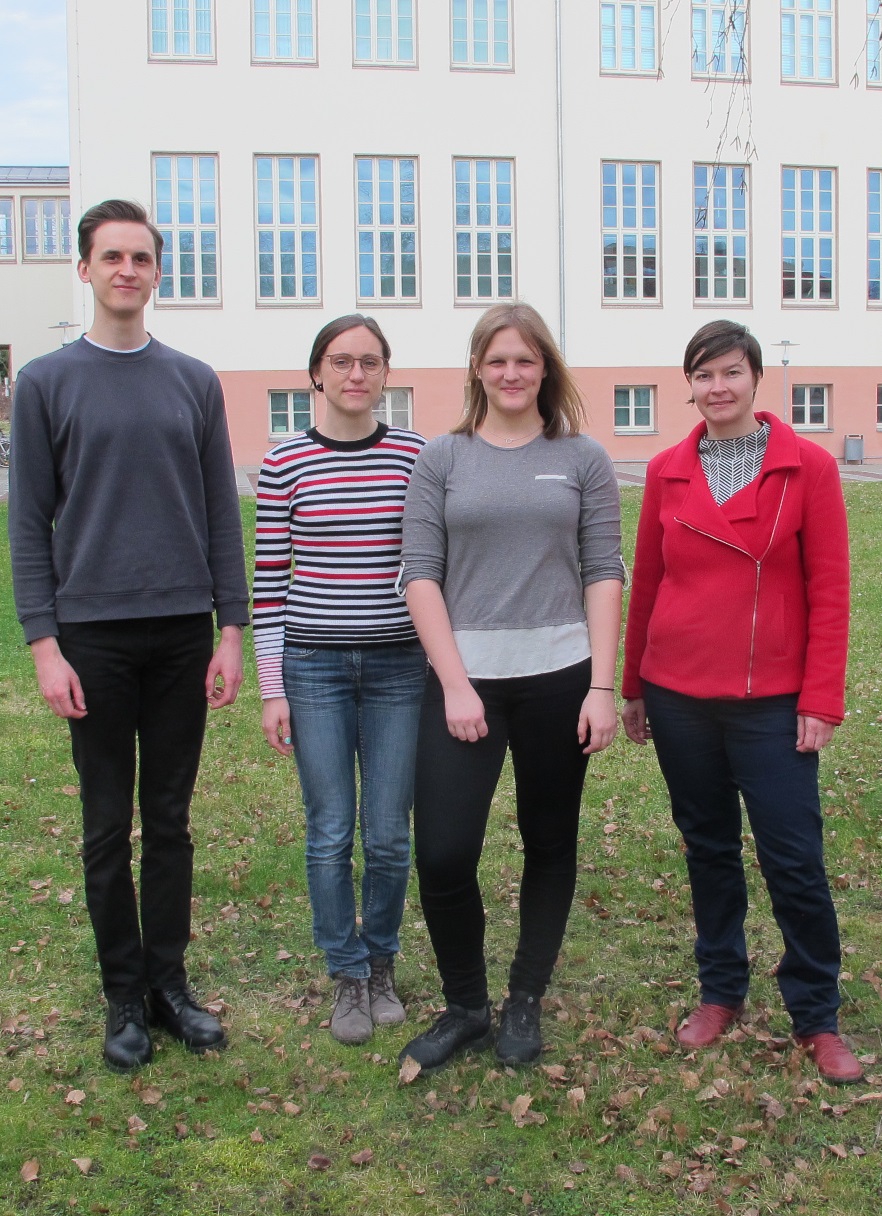Hoernke CV
Dr. Maria Hoernke studied chemistry at the Martin-Luther-Universität in Halle (Germany) and at Universidad de Burgos (Spain). She specialized in physical chemistry and biophysics.
Her Diploma thesis focused on the interactions of peptides with lipid model membranes and was carried out in 2007/2008 in Halle(S.). For her PhD project, Maria moved to the interfaces department of Max-Planck-Institute of Colloids and Interfaces in Potsdam (Germany) to study the impact of interfaces on amyloid formation of peptides. After receiving her PhD in 2012, she joined the Theory & Bio-Systems department of the same MPI to complement the project with molecular dynamics simulations as a Postdoc. In 2013, Maria joined Göteborgs Universitet (Sweden). She won a Marie Curie IEF fellowship in order to use time resolved X-ray solution scattering to study conformational changes in photoreceptor proteins. She also investigated structural changes in membrane associated proteins by infrared spectroscopy. 2015 Maria moved to Freiburg to help establishing the Heerklotz group. The Daimler and Benz foundation contributed funding and since 2019 Maria raises funding for her own team from the DFG. In 2023, the team got split to Freiburg and Halle University.
Maria was speaker of the section 'Membrane Biophysics' of Deutsche Gesellschaft für Biophysik e.V.
http://www.dgfb.org/de/ueber-dgfb/sektion-2.html
Research topics
- biophysics of lipid membrane models
- peptide-membrane interactions
- permeabilization of lipid membranes
- antimicrobial activity
- lipid selectivity
- conformational changes and orientation of mebrane-bound, surface-bound and soluble proteins or peptides
- surface-sensitive biophysical methods
Methods
- fluorescence spectroscopy (TCSPC, FRET, etc.)
- infrared spectroscopy (including infrared reflection-absorption spectroscopy)
- microcalorimetry (differential scanning calorimetry, isothermal titration calorimetry)
- monolayer methods
- X-ray solution scattering (SAXS/WAXS, time-resolved X-ray scattering)
- UV/VIS spectroscopy
- circular dichroism
- dynamic light scattering
Monolayer techniques
- infrared reflection absorption spectroscopy (IRRAS)
- grazing incidence X-ray diffraction reflectometry (X-ray and neutrons)
- total reflection X-ray fluorescence
Computational methods
- basic knowledge in MD simulations


